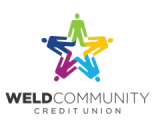As the coronavirus pandemic continues to sweep across the planet, the race to find a cure has taken on desperate urgency. Pharmaceutical companies and researchers around the world are scrambling to find a way to stop the virus and to immunize people against becoming infected.
Unfortunately, scammers have recognized an opportunity to rob innocent victims of their money while giving them false hope for defeating the virus. The FBI is warning of a surge in COVID-19 cure scams in which criminals peddle an alleged vaccine or treatment for coronavirus. Scammers are also claiming they can disinfect a home and all surfaces against the lingering virus after a family member was infected.
“The last thing the American people need, in the middle of this pandemic, is criminals trying to take advantage of them and profit off their concerns,” FBI Director Chris Wray said.
Here’s all you need to know about these scams.
How the Scams Play Out
There are several variations of coronavirus cure scams, most of which profit off the fear and panic of those who are already infected by COVID-19 and people who are fearful of contracting the virus.
One such scam involves a bogus website allegedly selling a vaccine against the novel coronavirus. In one instance, during the last weekend of March, 2020, a federal court ordered the shutdown of a website, “CornavirusMedicalKit.com.” The spammy site offered visitors a vaccine kit to protect against the coronavirus for just a nominal shipping fee of $4.95.
“In fact, there are currently no legitimate COVID-19 vaccines and the WHO (World Health Organization) is not distributing any such vaccine,” the Justice Department said about the website.
In another scam, victims receive a phone call in which a recorded voice offers to send them a free testing kit for the coronavirus. The victim need only pay the shipping charges for these testing kits — which, of course, are worthless. The Federal Communications Commission (FCC) released several samples of these calls to raise awareness and alert the public about their circulation.
In yet another scam, bogus cleaning agencies advertise about their disinfecting and sanitizing services, claiming they can eradicate the virus from patients’ homes.
“For only $79 our highly trained technicians will do a full air duct cleaning and sanitation to make sure that the air you breathe is free of bacteria,” a voice on one of these calls says.
Unfortunately, after making a payment for the service, the victim will never hear from the agency again. In another variation, the “cleaning agency” will show up at the victim’s home, and perform a rudimentary cleaning using a simple solution of ordinary soap and water, which does little to disinfect against a lingering virus.
How to Spot the Scams
The coronavirus cure scams are fairly easy to spot. With just a bit of awareness and the knowledge of some basic information about COVID-19, you can recognize a scam and keep yourself safe from being victimized.
First, as mentioned, there is currently no approved vaccine or cure for the novel coronavirus. When a vaccine and cure do become available, it will likely make national headlines. You won’t first hear of it through a robocall. If a company reaches out to you trying to sell you a vaccine or cure, you’re likely looking at a scam. Hang up and don’t engage further.
Similarly, there are no FDA-approved at-home tests for the coronavirus available for the public. If a company tries to sell you one, it is likely a bogus test that won’t tell you if you’re actually infected by the virus or not.
Finally, if you or a member of your family has tested positive for COVID-19 and you’d like to sanitize your home from all traces of the virus, there’s no need to call a cleaning agency. You can do it yourself by following the CDC’s guidelines for disinfecting your home and all surfaces from the virus.
Don’t let the pervading fear and uncertainty of the coronavirus pandemic get your guard down. Arm yourself with the information you need to recognize potential coronavirus scams, and keep yourself aware and alert at all times. Stay safe!

